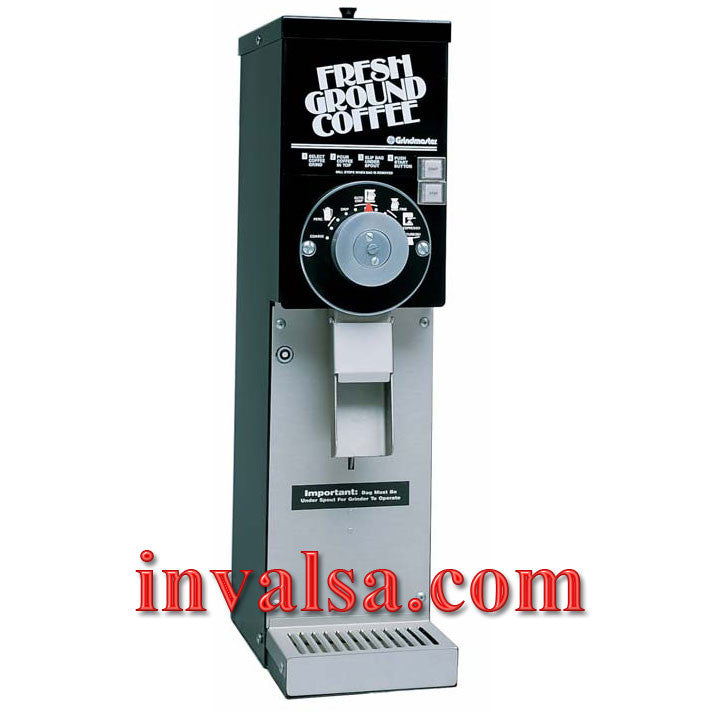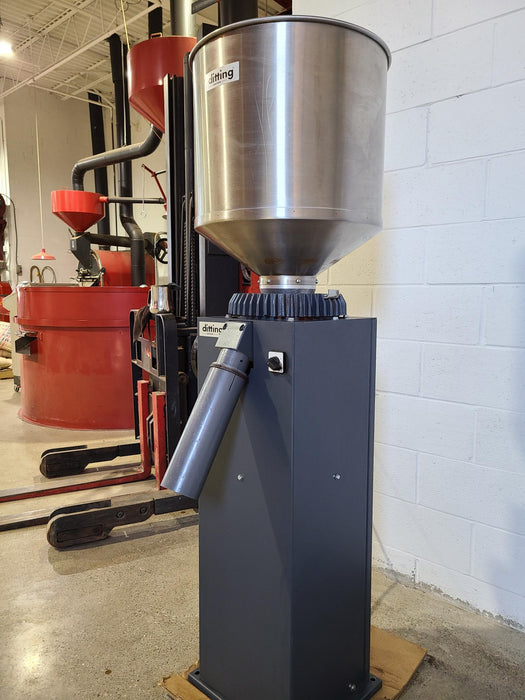Industrial Coffee Grinder vs. Personal Grinder: Key Differences Outlined
Industrial Coffee Grinder vs. Personal Grinder: Key Differences Outlined
Blog Article
How to Pick the Perfect Industrial Coffee Mill for Your Company
Picking the perfect industrial coffee mill for your service is a multifaceted choice that needs cautious consideration of several important factors. It is important to assess your certain grinding demands, consisting of the quantity of coffee refined and the wanted work uniformity, as these components directly affect flavor and customer fulfillment. Additionally, comprehending the numerous kinds of grinders available can considerably influence your operational performance. As you navigate these factors to consider, one need to likewise weigh the implications of spending plan and upkeep. What various other variables could make or damage your option?
Assess Your Grinding Requirements
When choosing a commercial coffee grinder, one should initially assess their grinding needs to guarantee ideal performance and uniformity. This initial evaluation includes comprehending the volume of coffee to be refined daily, as well as the wanted grind size for different developing approaches. A high-capacity mill might be necessary for services serving huge quantities of coffee, while smaller procedures could discover an extra portable design enough.
In addition, it is necessary to think about the types of coffee beans being made use of, as different beans may need details grinding strategies to accomplish the finest flavor profile. Oily beans may necessitate a mill made to manage such attributes without clumping or overheating.
One more critical variable is the needed work consistency. Specialized coffee companies frequently require exact grind dimensions to enhance removal and flavor, making it important to pick a mill that can deliver uniform outcomes. Ultimately, examining the readily available room and electric needs will aid in picking a grinder that fits flawlessly right into your functional process. By thoroughly assessing these factors, businesses can make educated choices that line up with their coffee grinding needs, inevitably bring about a premium item and satisfied clients.
Understand Grinder Types
Understanding the various kinds of commercial coffee grinders is vital for making a notified choice that satisfies particular operational demands. There are primarily 2 groups of grinders: blade mills and burr mills.
Blade mills utilize spinning blades to chop the coffee beans, resulting in an inconsistent grind size - Industrial Coffee Grinder. While they might be extra affordable, they are typically not appropriate for industrial applications where precision is important
On the various other hand, burr grinders provide an extra consistent work by crushing the beans between 2 surfaces. They can be additional classified right into flat burr and conelike burr grinders. Apartment burr mills offer a regular grind dimension and are typically preferred for coffee preparation, while conical burr grinders are versatile and can take care of an array of brew approaches, from espresso to French press.
When selecting a grinder, think about the details needs of your business, including wanted grind uniformity, production quantity, and the kinds of coffee drinks you prepare to provide - Industrial Coffee Grinder. Each mill kind has its restrictions and advantages, so understanding these nuances enables notified decision-making that aligns with operational objectives
Evaluate Work Dimension Uniformity
Attaining grind size uniformity is crucial for creating premium coffee, as variations in fragment dimension can considerably influence removal and flavor. When choosing a commercial coffee grinder, it is essential to assess how well the device keeps harmony in work size across different sets. Irregular grind sizes can cause irregular removal, causing a cup that may taste weak or excessively bitter.
To assess work dimension consistency, take into consideration grinders with attributes such as flexible work setups and top quality burrs. Burr grinders, in specific, stand out in generating uniform bit sizes compared to blade mills. The material and form of the burrs play an essential function, with stainless steel and ceramic options offering longevity and accuracy.

Think About Production Ability
In the hectic world of coffee manufacturing, considering production capability is extremely important for businesses aiming to fulfill demand without compromising quality. click to find out more The manufacturing ability of a commercial coffee grinder straight influences a firm's ability to accomplish orders efficiently, handle inventory, and reply to varying market fads.
When evaluating manufacturing capacity, it is vital to assess the grinder's output rate, commonly measured in extra pounds per hour. This dimension must align with your company's projected sales volume and development targets. A café with a high turn over may require a grinder that can refine several hundred pounds daily, while a smaller procedure may suffice with a reduced capacity design.
In addition, consider the sort of coffee being refined. Different beans and blends might affect grinding speed and performance, necessitating a grinder with the ability of managing varied manufacturing needs. It's also worth considering the mill's capacity to preserve regular high quality under high output conditions, as any type of variations can affect the end product.
Inevitably, additional reading selecting a grinder that matches your service's production ability will certainly ensure you remain affordable and responsive to customer assumptions.

Budget Plan and Upkeep Factors
When examining the best commercial coffee mill, maintenance and spending plan aspects play a significant role in the general decision-making procedure,. An initial financial investment in a top quality grinder can generate lasting benefits, but it's necessary to establish a clear budget that aligns with your company's operational demands. Think about both the purchase rate and potential functional costs, such as energy intake and replacement components.
Maintenance is an additional vital aspect that can impact your budget. Industrial coffee mills need normal upkeep to guarantee ideal efficiency and longevity. Review the producer's recommendations for maintenance, including cleaning timetables and parts substitute, as these will impact long-lasting functional costs. Additionally, consider the schedule of solution and support, as reliable aid can minimize downtime and repair service costs.

Purchasing a mill that is long lasting yet easy to preserve can conserve money with time. While lower-priced alternatives may be tempting, they might sustain higher maintenance prices and lowered effectiveness. Eventually, stabilizing initial costs with lasting maintenance and functional effectiveness will certainly lead you to the most effective selection for your service's coffee grinding requirements.
Conclusion
Selecting the ideal commercial coffee mill demands a thorough assessment of grinding requirements, mill types, grind dimension consistency, manufacturing capacity, and monetary considerations. By prioritizing these factors, businesses can ensure the purchase of a reputable, efficient grinder that satisfies certain functional needs. An appropriate grinder not only improves the high quality of the coffee look at this now generated but also contributes to the general success and earnings of the venture. Lasting efficiency and upkeep convenience need to continue to be main to the decision-making procedure.
Specialized coffee organizations usually require exact work dimensions to boost removal and flavor, making it vital to choose a mill that can provide uniform results. Flat burr grinders supply a regular grind size and are typically preferred for espresso preparation, while conical burr mills are flexible and can deal with a range of mixture techniques, from espresso to French press.
When picking an industrial coffee mill, it is crucial to review exactly how well the machine keeps uniformity in grind dimension across various sets. Burr grinders, in certain, excel in generating uniform particle dimensions compared to blade mills.Choosing the perfect commercial coffee grinder necessitates a detailed examination of grinding needs, grinder kinds, grind dimension consistency, manufacturing capability, and budgetary factors to consider.
Report this page